HR software provider Ciphr polled 332 British employers to find out how the ‘great resignation’ has impacted their staff retention and recruitment over the past twelve months.
Recruitment
Nearly three-quarters (71%) of employers found it more challenging than usual to recruit new employees over the past year. That figure rose to 77% for larger employers (those with between 251 and 5,000 employees) and decreased to 51% for smaller employers (those with between 26 and 50 employees).
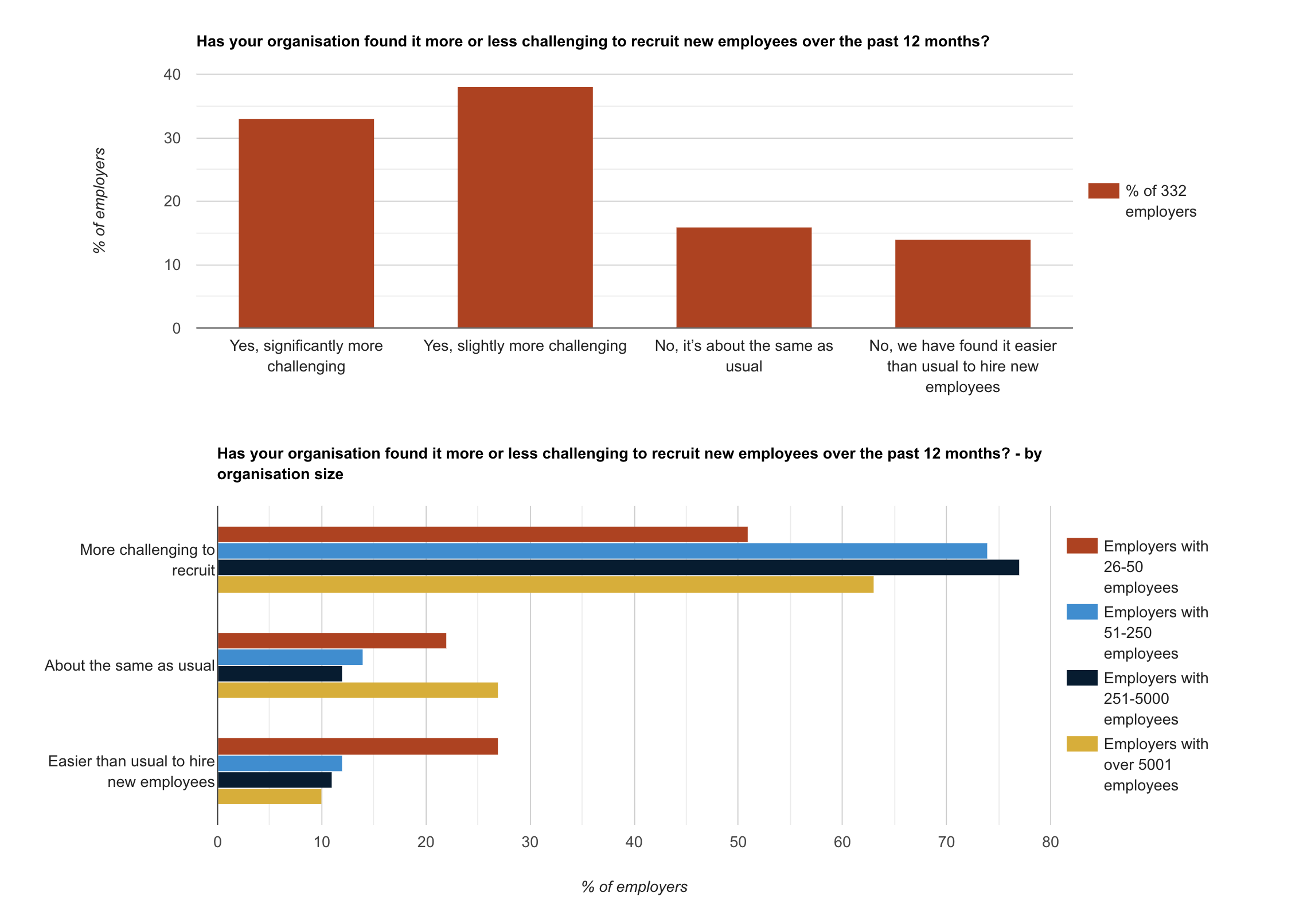
Comparison between employers whose employees mainly work from home and employers whose employees mainly work from the workplace
Employers who offer their staff the option to work fully remotely from home are three times more likely to have found it easier than usual to hire new employees over the past year, compared to employers with staff working 100% onsite at an office or work premises (27% compared to 8%).
71% of employers whose staff mostly work from the workplace (60% to 100% of the time) found it more challenging than usual to recruit, compared to 51% of employers whose staff mostly work from home (60% to 100% of the time).
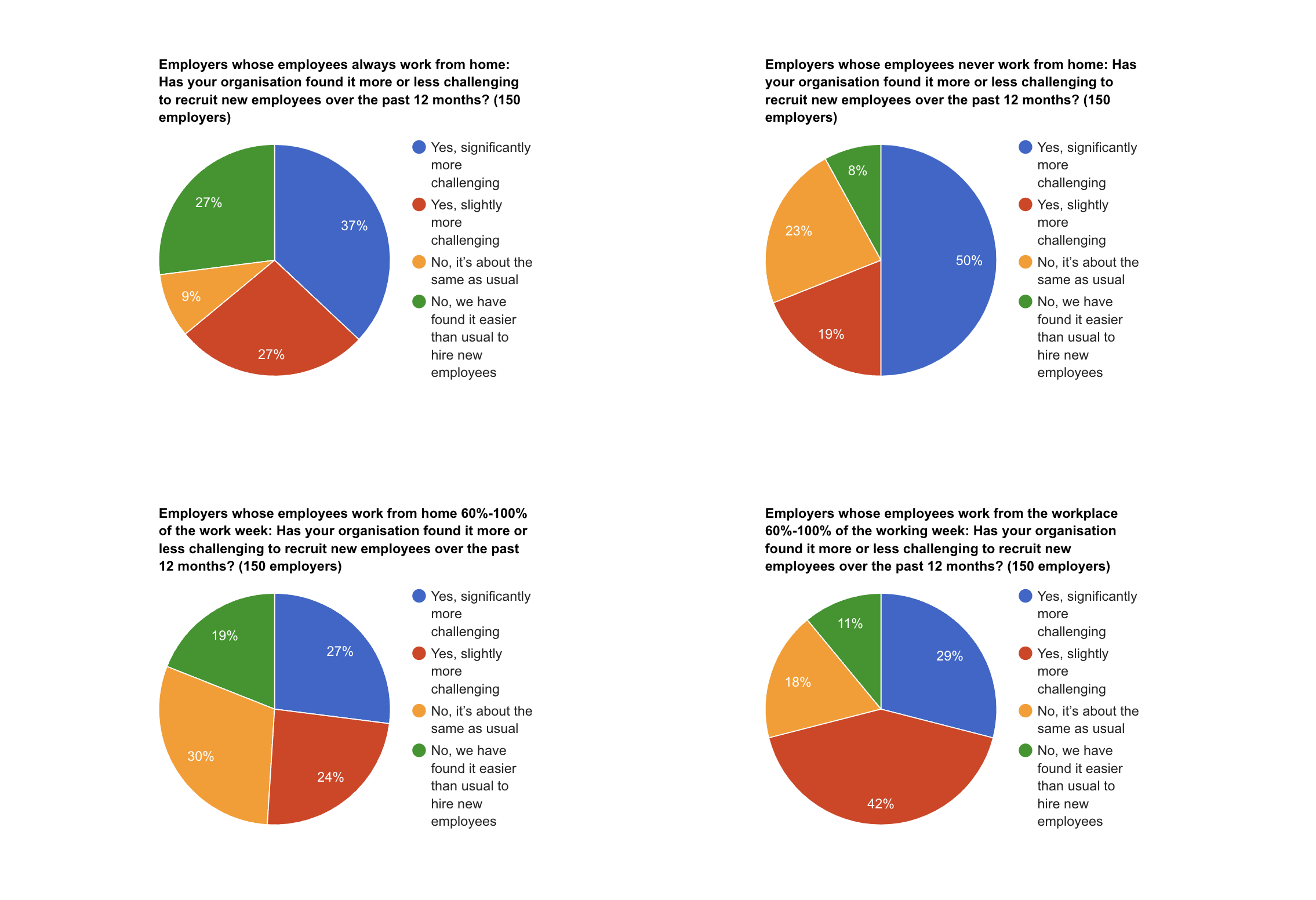
Employers that have found it more challenging to recruit new employees over the past 12 months - by industry
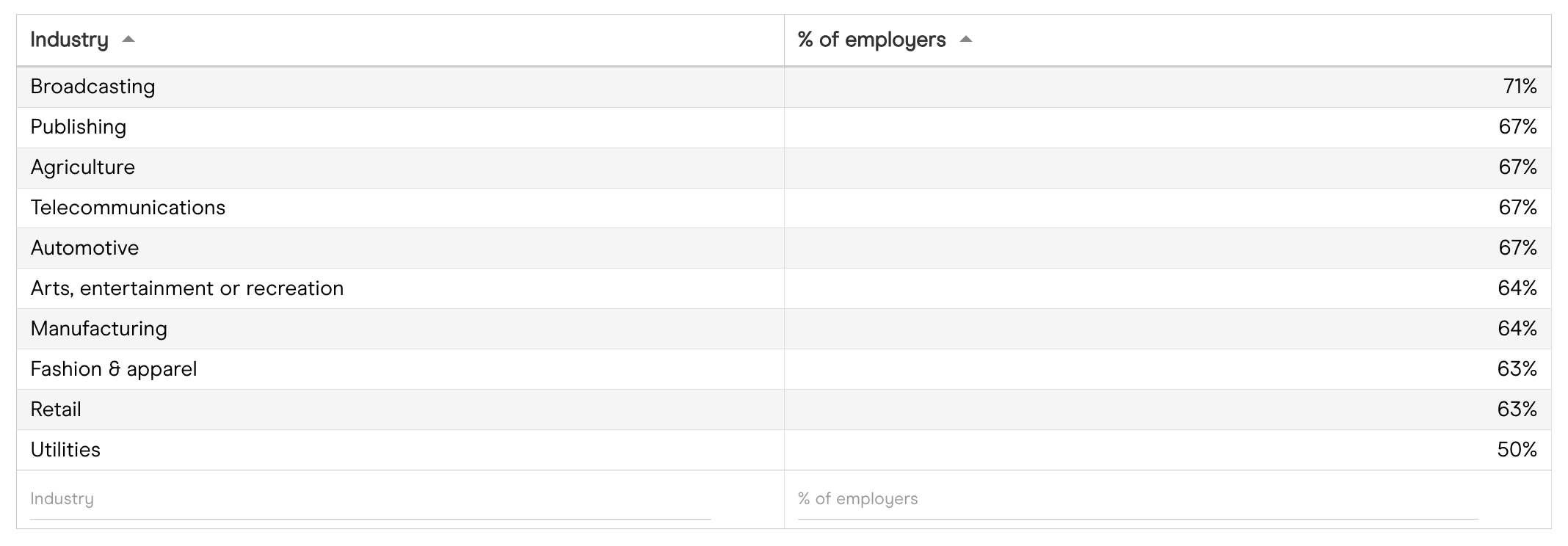
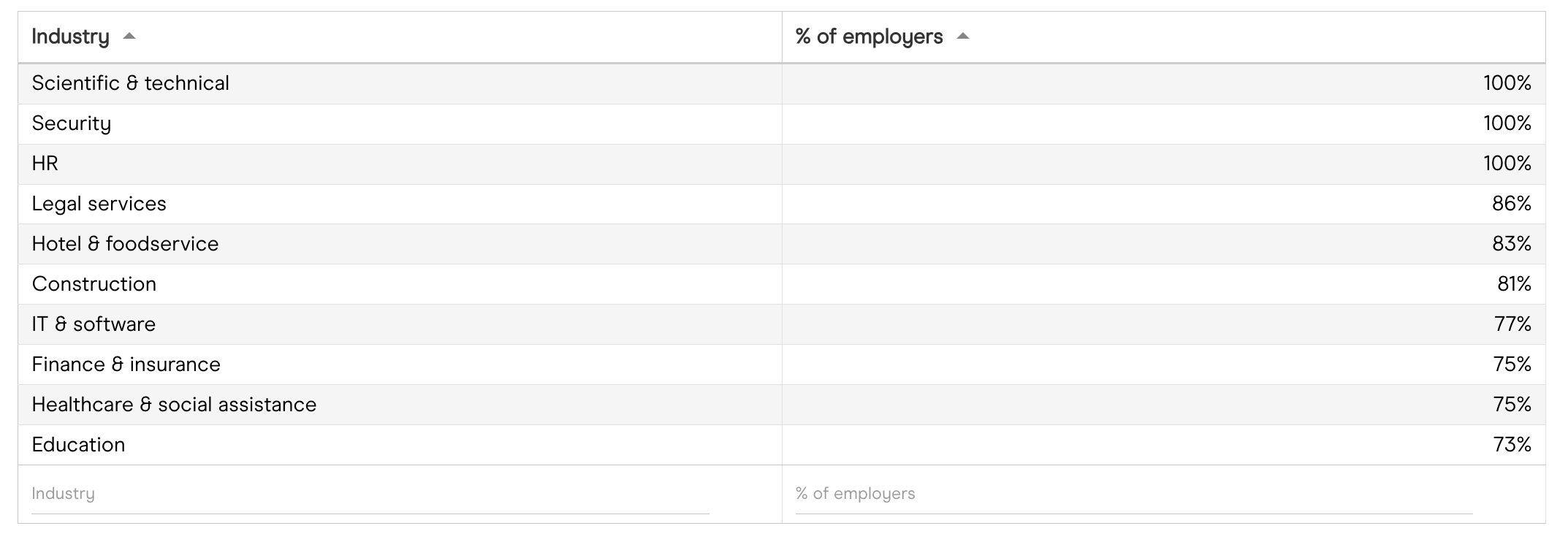

Retention
Nearly three-quarters (73%) of employers have seen an increase in employees voluntarily resigning over the past year (compared to previous years). That figure rose to 83% for larger employers (those with between 251 and 5,000 employees) and decreased to 55% for smaller employers (those with between 26 and 50 employees).
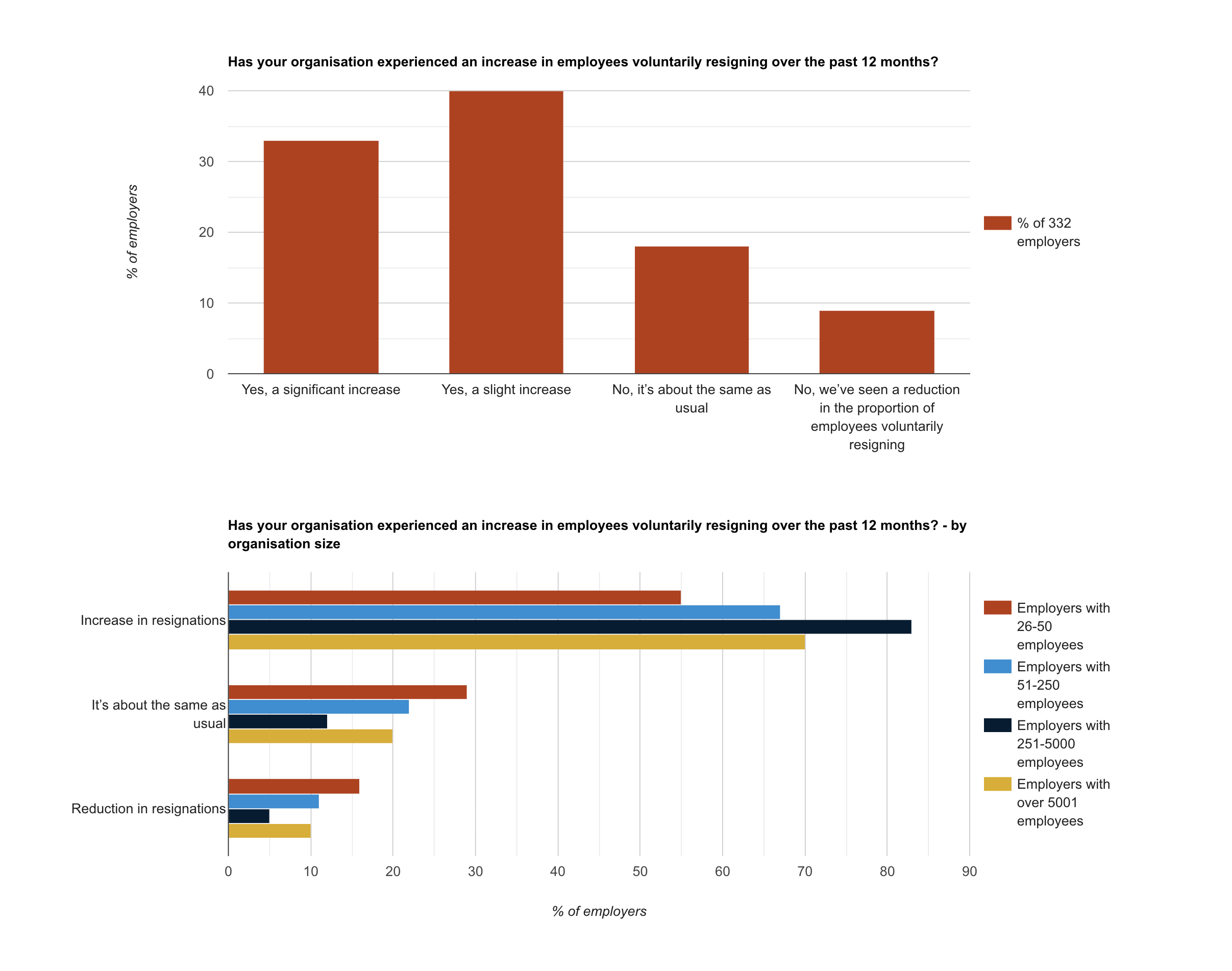
Comparison between employers whose employees mainly work from home and employers whose employees mainly work from the workplace
Nearly one in seven (15%) employers whose employees never work from home have reported a reduction in the number of employees voluntarily resigning over the past year (the average was just 9% across all employers).
Most employers have experienced more voluntary resignations than usual over the past year. Over four-fifths (82%) of employers with employees who always work from home say they’ve seen an increase in resignations. As have 70% of employers with some form of hybrid workforce (their staff work remotely 20% to 80% of the time) and 54% of employers with employees who never work from home.
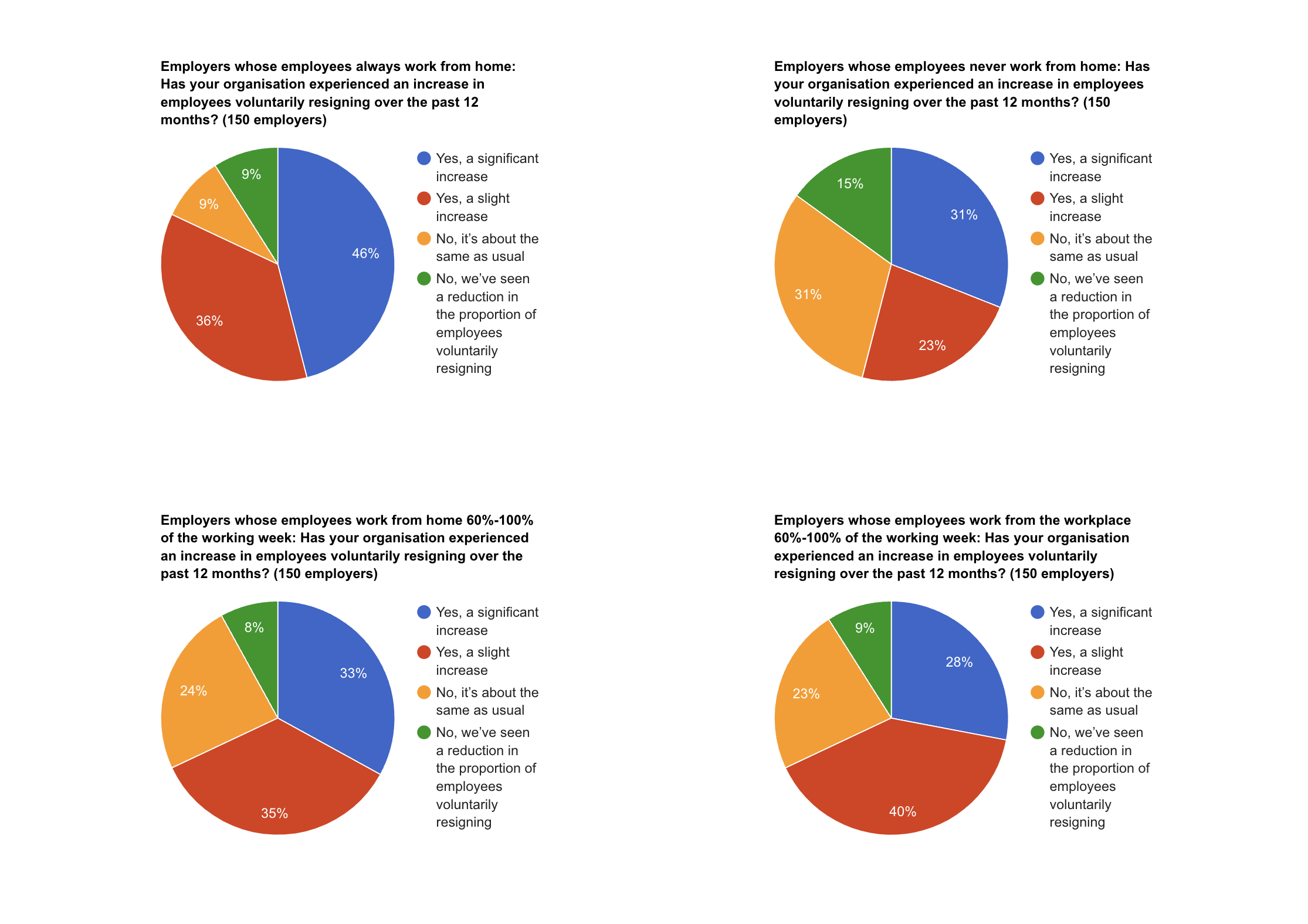
Employers that have experienced a significant increase in employees voluntarily resigning over the past 12 months - by industry
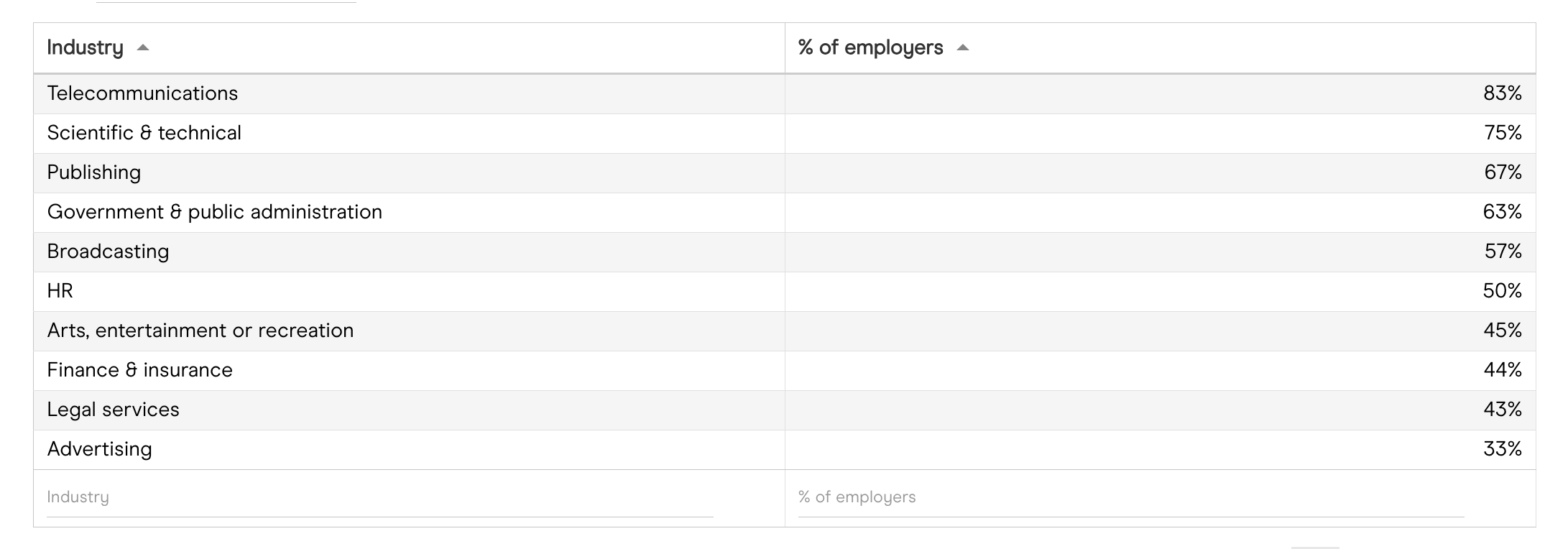
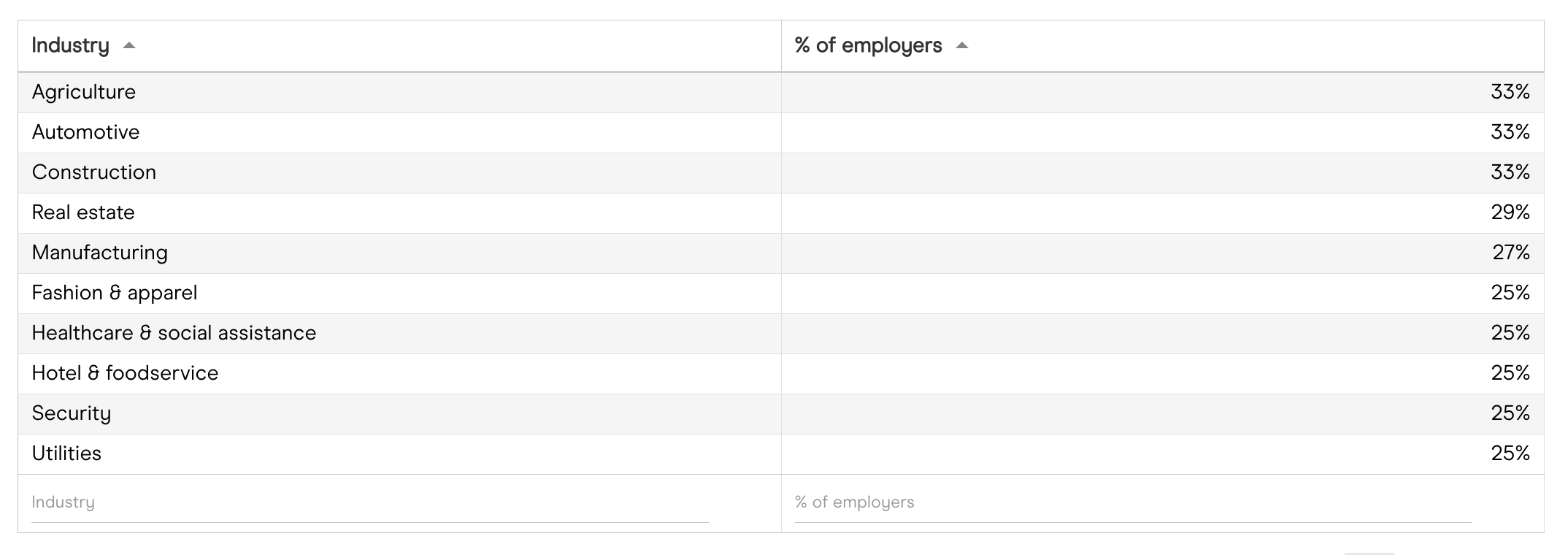

Number of days per week that employees are expected to attend their employer’s office or work premises (150 employers):
Employers with a predominantly non-desk-based workforce are more likely to require their staff to work from their offices or work premises every day, compared to their desk-based counterparts. 37% of employers with a mainly non-desk-based workforce say their employees never work from home, compared to 16% of employers with mainly desk-based workforce.

Do you agree that: Employees and job seekers are in the driving seat when it comes to negotiating salaries, benefits and flexible working?
Two-thirds (66%) of polled employers agreed that ‘employees and job seekers are in the driving seat when it comes to negotiating salaries, benefits and flexible working’.
Employers that have reported recruitment challenges or say that resignations have risen are the most likely to think that their employees are ‘in the driving seat.
73% of employers who say they’ve seen an increase in resignations agree that employees and job seekers are ‘in the driving seat’, compared to 52% of employers who say it’s been the same as usual or that there’s been a reduction in the proportion of employees voluntarily resigning over the past year. While 74% of employers who say they’ve found it more challenging than usual to recruit agree that employees and job seekers are ‘in the driving seat’, compared to 51% of employers who have found it either the same as usual or easier to recruit new employees.
Only around half of employers working in the automotive industry, retail trade, healthcare and social assistance, and shipping and distribution (20%, 31%, 50% and 50% respectively) think that employees and job seekers are ‘in the driving seat’.
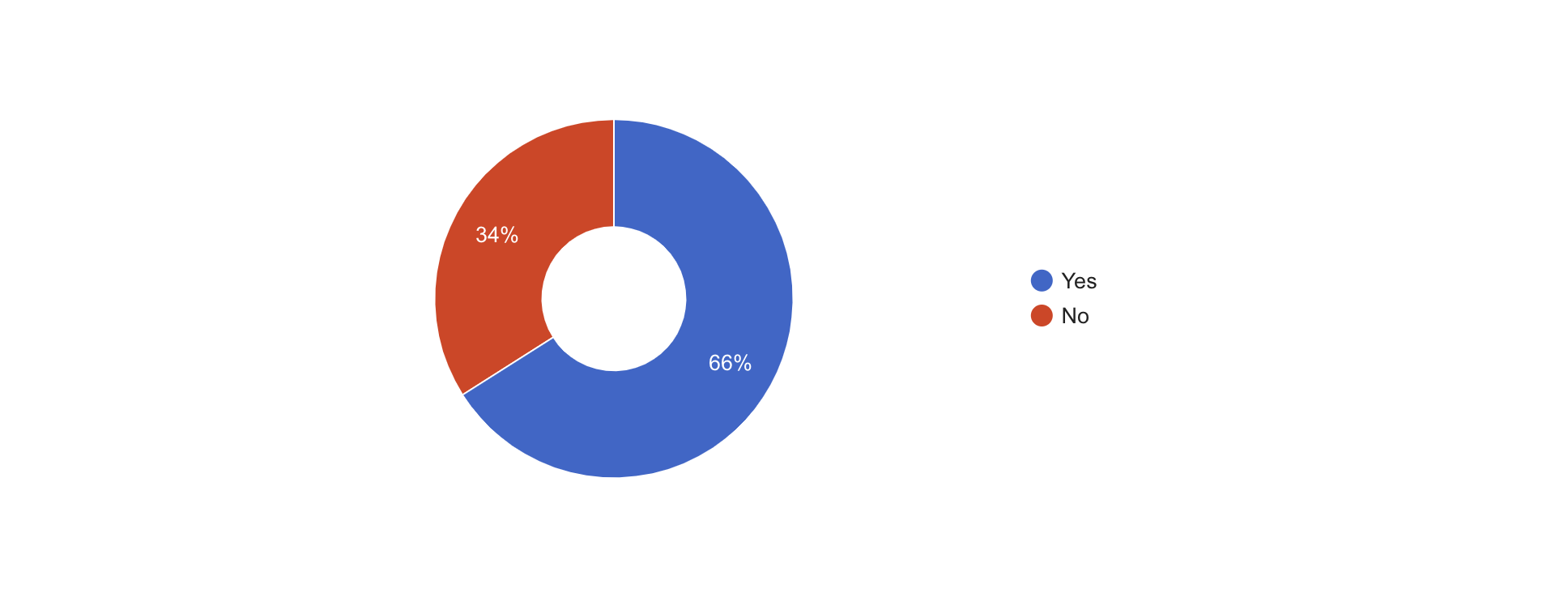
Employers that agree that employees and job seekers are ‘in the driving seat’ when it comes to negotiating salaries, benefits and flexible working - by industry
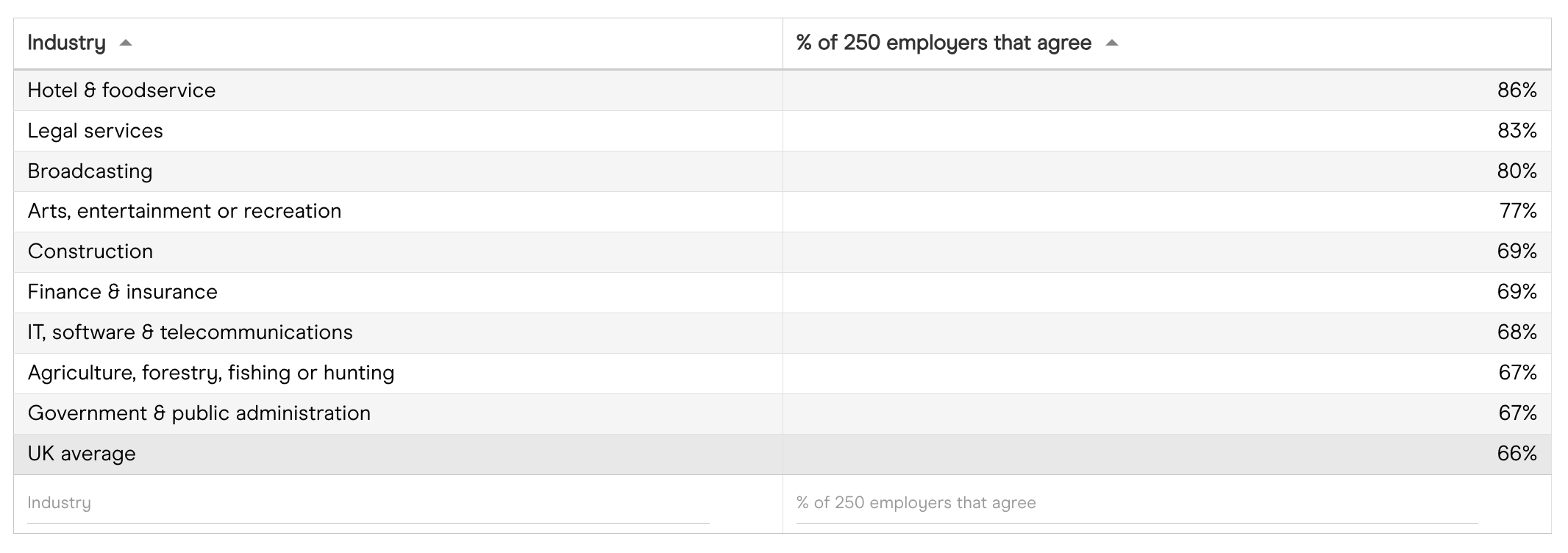

Notes
Ciphr polled 332 British employers between 18-26 February 2022. All respondents hold the following job titles: owner or partner, CEO/president, CFO, director, or C-level executive. Over half (51%) of organisations surveyed have 251+ employees, a third (34%) have 51 to 250 employees, and one in seven (15%) have 26 to 50 employees.
All statistics have been rounded to the nearest integer or to one decimal place. Totals may not sum due to rounding.
